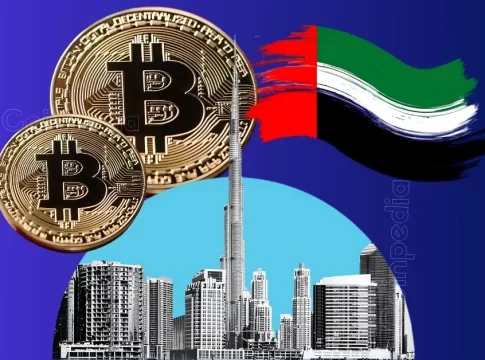Amid ongoing global economic shifts, the United Arab Emirates (UAE) has strategically positioned itself as a frontrunner in cryptocurrency and blockchain innovation. Driven by strategic regulations and tax incentives, this Gulf nation is setting a precedent for countries worldwide, including the United States, on how to capitalize on the burgeoning digital finance sector.
As the Trump administration prepares to take office, there is increasing pressure to reevaluate U.S. cryptocurrency policies. Many experts, like Eric Trump, have pointed to the UAE’s proactive approach as a potential model for the U.S. “The UAE exemplifies how to get it right,” said Eric Trump at the Bitcoin MENA conference. “They have managed to generate jobs, attract investments, and boost their international reputation by embracing crypto innovation. The U.S. is more than capable of achieving similar success.”
From July 2023 through June 2024, the UAE saw cryptocurrency transactions soar to $34 billion, marking a remarkable 42% increase from the previous year. According to Chainalysis, a blockchain analytics firm, this growth reflects the UAE’s adeptness in balancing innovation with investor protection.
A pivotal aspect of the UAE’s strategy has been its tax policy. Last year, UAE officials abolished the value-added tax on cryptocurrency transactions, applying this change retroactively to 2018—a move designed to supercharge the sector. The Virtual Assets Regulatory Authority oversees this burgeoning field, striving to ensure compliance with international anti-money laundering standards while promoting blockchain development.
“The UAE’s crypto policies are as much about enhancing its geopolitical clout as they are about economic gains,” remarked Sam Blatteis, CEO of The MENA Catalysts. “The country’s focus on diversifying its economy has resulted in significant geo-economic benefits and attracted global blockchain firms.”
Stablecoins, digital currencies pegged to traditional assets like the U.S. dollar or UAE dirham, play a crucial role in the UAE’s financial ecosystem. With the introduction of a dirham-backed stablecoin by Tether in collaboration with Abu Dhabi firms, the UAE aims to facilitate cross-border payments and enhance everyday transactions.
“Stablecoins act as a bridge between traditional and digital financial systems,” explained Eric Trump during his keynote address. “Their reliability and liquidity make them indispensable for financial inclusion and global trade.”
However, the rapid adoption of digital technologies in the UAE is not without significant risks. According to cybersecurity firm CPX, the UAE’s expansion into digital finance has heightened its vulnerability to cyberattacks. “Many vulnerabilities remain unpatched for years, indicating a significant gap in our patch management practices,” warned Hadi Anwar, head of CPX.
The interconnected nature of the UAE’s digital infrastructure could amplify the impact of potential cyberattacks. More than 87% of UAE-based businesses reported cybersecurity incidents over the past two years, according to Kaspersky.
As the U.S. considers emulating the UAE’s approach, these vulnerabilities serve as a cautionary tale. The incoming Trump administration has expressed interest in forming a “bitcoin and crypto presidential advisory council,” hinting at a significant policy shift in its approach to digital assets.
David Sacks, an incoming White House adviser, is likely to look towards the UAE’s model to inform U.S. blockchain policy. This reflects a growing recognition that proactive regulation, rather than enforcement-heavy approaches, can unlock the sector’s potential.
“The UAE didn’t wait for blockchain to become safe or popular,” said Blatteis. “They took the risks, constructed the infrastructure, and demonstrated what leadership looks like.”
The Abraham Accords have further cemented the UAE’s status as a hub for innovation, creating opportunities for trilateral cooperation among the UAE, U.S., and Israel in blockchain and fintech development. This geopolitical collaboration underscores the UAE’s strategic foresight in leveraging technology to enhance its global standing.
As the global cryptocurrency market’s capitalization hit an estimated $3.3 trillion in 2024, both supporters and critics agree that the stakes are high. The UAE has set a benchmark for crypto innovation, presenting an opportunity for other nations to follow suit.
“The UAE has shown the world how to lead,” concluded Alexander Guseff, creator of SyntezNote. “Now, it’s up to others to follow.”


